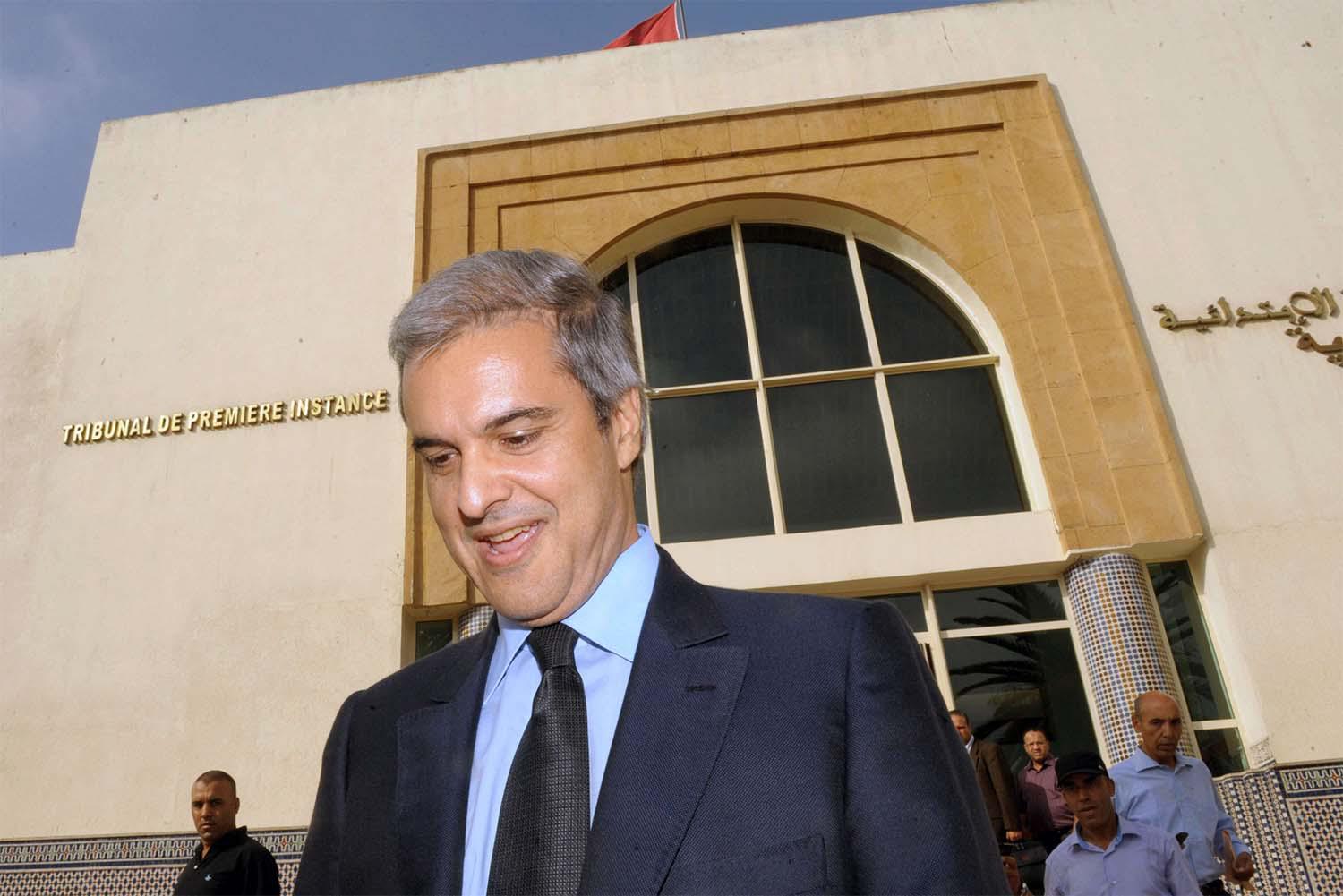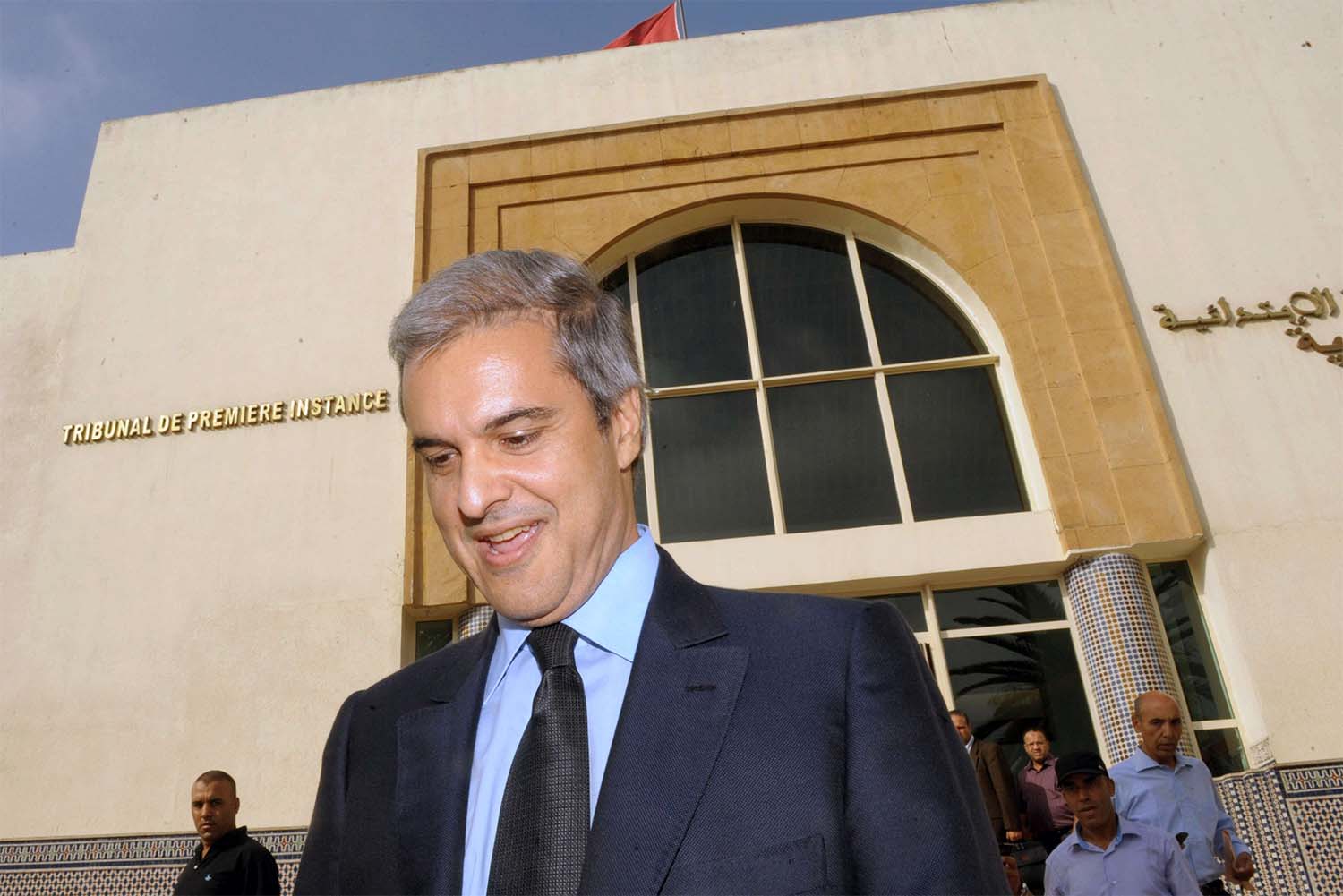Columnist Abou Wael Al Riffi corrects Moulay Hicham’s analysis
Morocco’s Prince Moulay Hicham carried out an analysis of the normalisation of relations between the United Arab Emirates and Israel, which he attributes in particular to Abu Dhabi's concern of seeing Prince Mohammed Bin Salman ousted from the throne. Columnist Abou Wael Al Riffi corrects him with a lesson in geopolitics.
In a column published in the news outlet Orient xxi, titled “Israel-Emirates. Neither betrayal nor historic agreement,” Prince Moulay Hicham engages in a risky analysis, which is full of clichés and aberrant accounts of the facts underlying the normalisation of ties between Tel Aviv and Abu Dhabi.
The prince said that one of the reasons that justified the UAE’s motives was "to protect itself from the shockwave that could represent an internal conflict in Saudi Arabia, which would neutralize Mohammed Bin Salman. If such an event occurred, the Emirati rulers would be isolated.”
This point of view was relayed by journalist Houssein Majdoubi in the Arabic-language daily Al Quds Al Arabi under the headline "Abu Dhabi worries that Bin Salman is ousted from the throne."
In an analysis published on September 6 on Morocco’s most viewed e-news channel Chouf TV, columnist Abou Wael Al Riffi demonstrated the emptiness of Moulay Hicham’s words, which suggest that Saudi Arabia’s strongman Mohammed Bin Salman (MBS) could be ousted. The columnist recalled that "Mohammed Bin Salman is today the most popular man in Saudi Arabia."
The prince embodies the aspirations of a large portion of young Saudis who want to rid Saudi Arabia of Wahhabism. These young people, who are tired of oppressive conservatism, call for a modernisation of Saudi society. They unreservedly approve the reforms MBS has undertaken which represent, for them, hope for a new Saudi Arabia.
The columnist recalled that many of Saudi Arabia's elites and forces were trained in Western countries, where they have been able to taste the freedom to dress and to live their lives as they see fit.
Admittedly, at the end of their studies, they returned to their country to fall in step, and can only breathe during annual leave abroad, or during weekend or holiday trips to Bahrain or Dubai.
Abu Wael Al Riffi said that the dark burqa that covers Saudi women often covers designer clothes, and that those who wear them no longer want to hide their sense of style under a fabric undermines their feminism. These women now intend to play sports in public spaces, or “eat and drink without the compulsory wearing of the Wahhabi cover, as if they were living in an eternal COVID.”
"People want to live far from the crushing weight imposed by Wahhabism, and Mohammed Bin Salman is the Saudis’ hope to establish a country open to life, which will put an end to its people spending billions to enjoy life abroad.”
According to the columnist, Mecca and Medina have a separate status within Saudi Arabia. He recalled the example of the Vatican, which has the status of a state within Rome. The partisans of Wahhabism will be able to run the holy sites, which would take the status of an autonomous country.
This would make it possible to block an old claim by Iran, which aims to impose a collegial management of the holy sites, with the main representatives of the Islamic countries, including, of course, the Shiites. But if the holy sites were transformed into a religious and autonomous state, Iran's claim would become obsolete.
In his column, Moulay Hicham showed no interest to the popular reforms of Mohammed Bin Salman. The prince clearly still feeds on the archetypes of what Abu Wael Al Riffi called "the academic blackmail of Arab monarchies."
Moulay Hicham seems to forget that these monarchies no longer fear appearances in minor publications. Today, they invest in international media with a real influence on public opinion.
Furthermore, Abu Wael Al Riffi said that Arab monarchies no longer constituted a homogeneous block. Boycotted by its neighbouring Gulf Arab states, Qatar turned to Turkey, a non-Arab country, and put the media power of Al Jazeera at the service of the influence of Turkey and its strongman, Recep Tayyip Erdogan.
Al Jazeera establishes more and more each day an image of Turkey which ensures its leadership in the Sunni world, thus seeking to exclude Saudia Arabia, which traditionally filled this role, in the minds of Arab populations. Since the crisis with its neighbours, Qatar has put its news outlet Al Jazeera, at the service of Turkey, thus playing a dangerous game, which it has escalated since the assassination of Saudi journalist Jamal Khashoggi. The outlet’s editorial line decidedly favours Anatolia.
The columnist explained that the relationship between Qatar and Turkey almost surpasses that of a simple alliance. It has practically become an Anschluss. At the height of the siege imposed by the Gulf Arab monarchies, Turkey established an airlift to supply Qatar and ensure its military protection. Is Turkey going through financial turbulence? Now Qatar is bailing out Ankara's coffers, with a contribution of $15 billion.
Political Islam is the other base of this unification between Qatar and Turkey. The two countries are indeed the godfathers of the Muslim Brotherhood, and welcome, host, and finance the adversaries. When one of them feels cramped in Qatar, all it has to do is make a trip to the great Turkey, which then welcomes it with open arms and gives it every possible facility for the creation of television channels and other centres of influence funded by Doha.
The instrumentalisation of political Islam has not always been a priority for Turkey, whose religious agenda is subordinate to its nationalist agenda. Erdogan was able to transform Turkish nationalism, a legacy of Mustafa Kemal Atatürk, into Islamo-nationalism.
After joining the Islamist movement of Milli Gorus, led by Necmettin Erbakan, Erdogan then co-founded, with Abdullah Gül, the AKP, a party that welcomes nationalists, as well as Islamists close to the Gülenist movement. This powerful politico-religious nebula is directed from the United States by its spiritual leader, Fethullah Gülen, who does not have an Oriental tropism, and who opposes the radicalism of the Muslim Brotherhood.
Erdogan relied on the powerful Gülenist movement in exchange for the expansion of the economic presence, ideological presence, and network of schools of Gülenism in Arab, Muslim, and… African countries.
When the disagreements between Fethullah Gülen and Recep Tayyip Erdogan came to light, the latter turned to the Muslim Brotherhood to establish his influence in many countries where the group has built solid networks.
Recep Tayyip Erdogan is not particularly attached to the Muslim Brotherhood or to political Islamism, but he knows how to use it to achieve his dream of taking revenge on the Treaty of Sèvres, concluded on August 10, 1920, which broke up what was then the immense Ottoman Empire, after the First World War.
To do this, the head of the AKP does not hesitate to present himself as the worthy heir of the conquering dynasties of the Ottoman sultans. It is in this sense that we should interpret the conversion, on July 24, of the Hagia Sophia into a mosque. The parallel with Sultan Mehmet II, who conquered Byzantine Constantinople, present-day Istanbul, in 1453, and transformed the basilica into “Aya Sofia,” was skilfully orchestrated.
Another spectacular strike was the (well-studied) anger of Recep Tayyip Erdogan, in 2009, during a public debate organised at the Davos forum. The Turkish president, then prime minister, left the debate with panache, criticising the organisers for preventing him from speaking after an address by then Israeli President Shimon Peres. After this brilliant stroke, Erdogan was welcomed as a conqueror at home, and his popularity in the Arab world reached a peak.
Ahmet Davutoglu, then Turkish foreign minister, broke his silence a decade later to say that Erdogan feared the consequences of his spectacular performance, going so far as to reveal that he spent the night trying to appease tensions between the two parties.
"Erdogan knows that it was after my telephone conversations with Israeli officials that Shimon Peres apologised," Ahmet Davutoglu said.
But let's come back to this cohesive bond between Turkey and Qatar. In Libya it is flawless, to such an extent that their defense ministers synchronise their trips to the war-torn country.
In Yemen, Qatar is helping Turkey, through the Muslim Brotherhood’s presence of Al-Islah, to control the sea lanes in the southern Red Sea. It is doing so by competing with the Egyptians and Emiratis, who sought to establish themselves in the ports of the Horn of Africa, a highly strategic place for maritime trade between Asia and Europe. If the Emiratis have experienced some setbacks in Djibouti - which expelled them from the port of Doraleh that is located in the strategic gateway to the Red Sea - they have already installed a military base in Eritrea ... But the game is far from over.
Abou Wael Al Riffi revealed that Moulay Hicham seemed to be completely ignorant of the geostrategic issues that the bond between Turkey and Qatar on the one hand, and the alliance between Iran, Syria and Hezbollah in Lebanon on the other hand, have emerged as new dangers for Gulf Arab monarchies.
These states are certainly extremely rich, but need an alliance with a regional power. Furthermore, they would benefit from the full support of the United States to impose a new balance in this region where Turkey and Iran have already advanced their pawns. From this point of view, we can say that Moulay Hicham's angle, and his aberrations on MBS, show the futility of a supposed analyst who only provides the proof of his incompetence.







